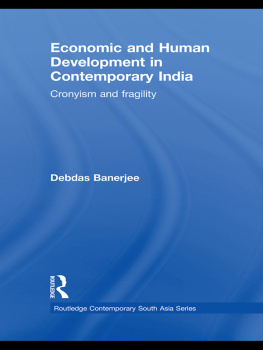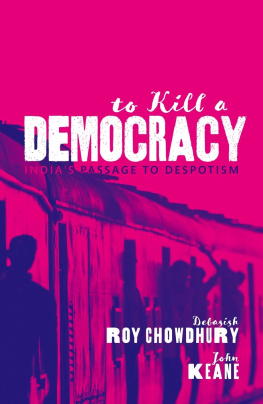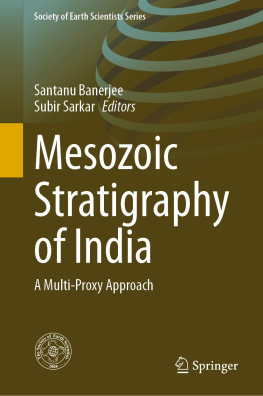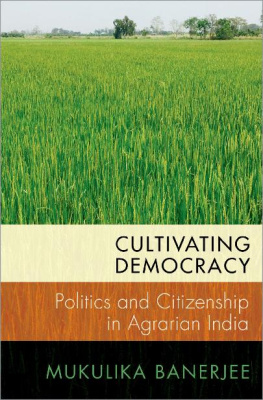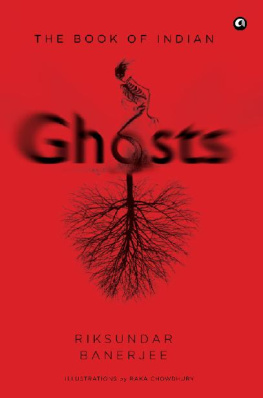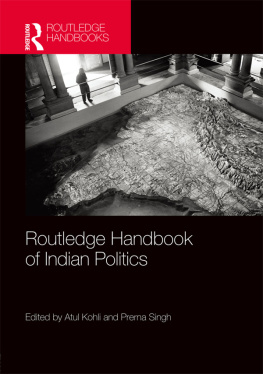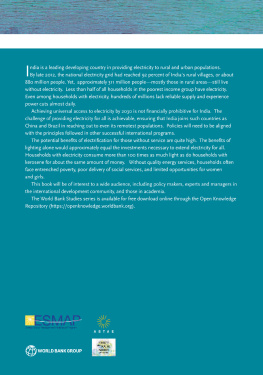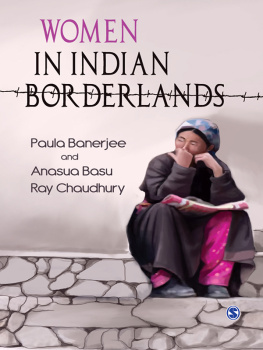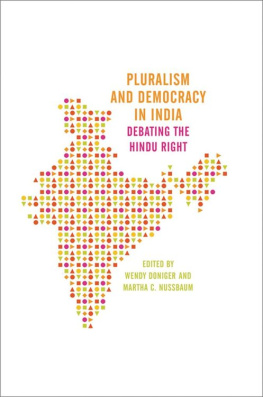Table of Contents
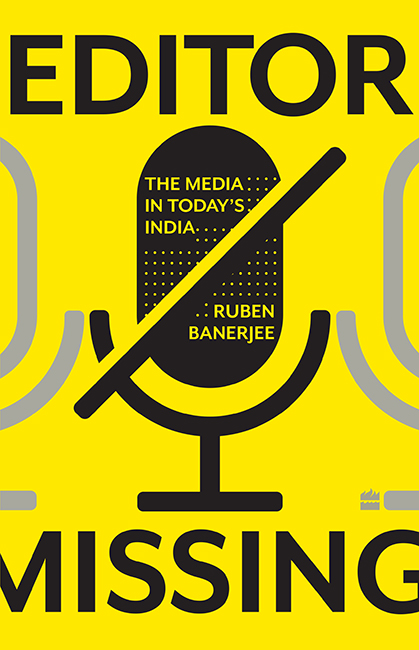

To
Deepali Banerjee
My Ma who too left us like Baba
CONTENTS
I WISH I DIDNT HAVE TO WRITE THIS BOOK. AT LEAST NOT SO SOON. You tend to reminisce about your past only when the present has seemingly overtaken you and the future doesnt seem to hold much hope. I consider this book part memoir a bit premature. However, a sudden disruption that threatened to derail my career occurred, which was least expected. I didnt bargain for it either. But far from doom and gloom, the changed circumstances presented a rare opportunity. I suddenly had the privilege of having a lot of spare time for undisturbed contemplation. The result is this book, something that I certainly had not planned for at this point.
But before putting pen to paper, there was a lot to ponder over. For one, I am not half as well-known as many of my fellow journalists and I certainly do not fit into the category of celebrity editors who crowd our consciousness. On the contrary, my career though long has been considerably less remarkable than that of many of my contemporaries who are high-profile journalists. True, I have worked diligently and honestly, and have also often found myself in the middle of conflicts and calamities. But I havent covered any wars and have never carried out any stings. I have not done TV journalism and my face is in no way famous.
Yet, not everything about me was ordinary. Call it destiny or a stroke of luck; I did get to occupy a chair once occupied by no less than the legendary editor Vinod Mehta. As his latter-day successor at one of Indias best-known news magazines, I got a ringside view of the tumult that constantly defines a vast country as ours. From my perch as the editor of Outlook, I gained a wholly different perspective. Good or bad, the constant churnings shaped our collective fortune and possibly left us more divided.
While not necessarily in the thick of things, I watched them closely. They gave me deep insights and helped me better understand issues from politics to the market and ideological forces at play that adversely impact the media. They impacted the calls that I took as an editor, and finally influenced the direction that my career took. The experiences I had were certainly enriching. But just when I thought that they had made me wiser, I found myself poorer without a regular job. The following pages are an account of the kaleidoscope of the terrific highs and terrifying lows that marked my life. Each one of them, I believe, have important takeaways for those trying to make better sense of present-day India. If not anything else, they can serve as cautionary tales for journalists who would be required to negotiate plenty of professional and political pitfalls.
In more ways than one, this book rich in anecdotes and real-life instances should prove to be useful. Particularly since it comes at a time when almost everything in this country is fiercely contested, and we are grappling to come to terms with deep divisions that run through us. At no point in the past have we perhaps lived in such trying times, despite our tryst with the Emergency in the mid-1970s. Among the very many things that we find upsetting, what roils a sizeable section of us the most these days, is perhaps the perceived shrinking space for free speech. We are less tolerant of contrarian views. The right to dissent that should be the bedrock of any decent democracy is believed to be seriously endangered in India. There are many who, consequently, feel we are in the midst of an undeclared and worst form of Emergency.
But unanimity is sorely missing from our lexicon; not everyone agrees with the dark parallels currently drawn with our past. The jury is consequently out on the current state of health of the worlds largest democracy. In fact, when Prime Minister Narendra Modi described it as the mother of all democracies during his September 2021 visit to the US, it only triggered another raucous round of disagreements. Those in his favour hailed the statement while those against dismissed it as hollow rhetoric. As charges and counter-charges fly on almost anything and everything that dominates public discourse, with no consensus anywhere in sight, we are undeniably becoming more divided and polarized.
This tell-all book relying on reflections of my eventful editorship at Outlook as well as my earlier stints as a fledgling reporter struggling to make his mark seeks to tell the intriguing story of contemporary India in an honest manner. The media, they say, mirrors society warts and all. In India, however, it has been in the news mostly for all the wrong reasons. Journalists are supposed to be objective, tasked with telling every side of a story. They are also meant to be free, fearless and not favouring anyone. But the reality is a far cry from what journalists the pillars of the fourth estate originally stood for. A divided polity has meant an equally divided media. One section never tires of unabashedly batting for those in power while the other spares no effort in criticizing the establishment. With battle lines so clearly drawn, there is growing concern that truth could be, and often is, the casualty.
Though not exactly a paragon of virtue with several inherent flaws pockmarking my own persona, I, as a journalist, havent ever swung to extreme positions. Call me old school or old-fashioned; I have been a centrist all my life, preferring to call a spade a spade unencumbered by political likes or dislikes. My personal beliefs or choices havent ever coloured my journalism. Further, my stint as an editor did give me the rare privilege of taking a closer look at what could be the best obtainable version of the truth. Every time something big happened, triggering more divisions and debates, I got to look at them as an impartial observer. I tried as much as humanly possible not to be partisan in my views and get to the bottom of issues. I dare not say what I concluded and what Outlook reported were the ultimate truth. But our reportage was indeed unburnished and unbiased, even if not universally liked.
We held on to our ground and scruples as much as we could. That was also the case when Outlook did its much talked about Missing cover in May 2021. It was the time when the country was being singed by a debilitating second surge of Covid, resulting in deaths and desolation on an unparalleled scale. We calculated the potential costs of putting out such a cover that had every chance of becoming controversial. It did, but never did we flinch as journalists in pursuing what was only the right course. We never wished to be complicit in the large-scale deaths and instead chose to call out what we considered a near abdication of its responsibilities by the government of the day. In an interview with CNN in the wake of the cover, I preferred to call it an act of obligation and not bravery. This book details the consequences of what I believe will be judged by history as a fine example of our undying faith in living up to ones call of duty.
Defending truth can exact unintended costs, and the behind-the-scene story of our Missing cover serves as an eloquent testimony of it. It was the perfect culmination of collective teamwork I thought about the idea, several of my colleagues commissioned the articles, and someone else came up with the actual Missing title, which for all purposes set the cat among the pigeons. But it has come to define my editorship, and some have gone a step ahead to declare it as a shot at writing my own legacy. But legacy or not, I am reeling from the shockwaves it undeniably set off, and I can safely say it has not been comforting.


